When spelling goes wrong: Famous typos from Trump to Nasa
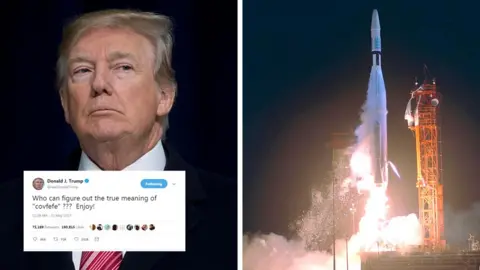 Getty Images/Donald Trump Twitter/Nasa
Getty Images/Donald Trump Twitter/NasaEven the most meticulous proofreaders make mistakes from time to time.
Typos, spelling mistakes and grammatical errors are irritants to some, sources of mirth to others and can lead to ridicule for those responsible.
Nobody is perfect, yet some blunders are far more costly and humiliating than others.
The Reserve Bank of Australia (RBA), for example, recently printed 46 million new bank notes with a glaring spelling mistake.
The word "responsibility" was erroneously spelled "responsibilty" on a newly minted A$50 ($35; £27) featuring Edith Cowan, Australia's first female MP.
Not surprisingly, the gaffe has been widely mocked on social media, but it is far from the only example of spelling sloppiness.
Here are some other errors that have generated headlines.
Trump's baffling 'covfefe' tweet
On 31 May, 2017, US President Donald Trump raised eyebrows by including a curious seven-character word in a late-night tweet.
"Despite the constant negative press covfefe," he tweeted.
Allow X content?
The word, "covfefe", was not included in any English dictionary. It appeared Mr Trump intended to write "coverage", maligning reports about his presidency.
In a bizarre twist, then-White House Press Secretary Sean Spicer said Mr Trump knew "exactly what he meant".
Internet users had a field day, teasing Mr Trump for his apparent typo.
Nasa's 'most expensive hyphen'
A misspelled word in a tweet is usually a trivial matter. A mistake by US space agency Nasa, however, is of a different order of magnitude.
On 22 July, 1962, Nasa launched Mariner 1, an American spacecraft designed for a planetary flyby of Venus.
Just five minutes after lift-off, Mariner 1 aborted its mission and was destroyed. Built at a cost of $18.5m (£14.2m), the launch was an expensive failure.
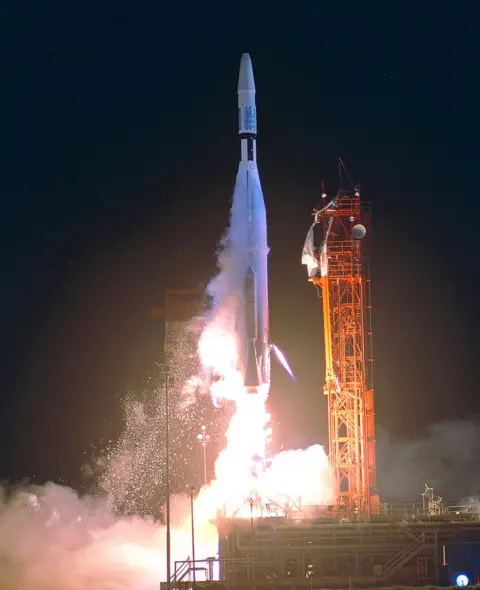 Nasa commons
Nasa commons
The cause, various reports suggest, was a computer coding error. Some accounts refer to a missing hyphen, while others cite an "overbar transcription error".
Evoking the hyphen narrative, science fiction writer Arthur Clarke said that Mariner 1 was "wrecked by the most expensive hyphen in history".
Harry Potter and the spelling mistake
However mistakes can sometimes also be advantageous - as a rare Harry Potter book proves.
An error-riddled version of JK Rowling's debut novel, Harry Potter and the Philosopher's Stone, fetched almost £70,000 at auction this year.
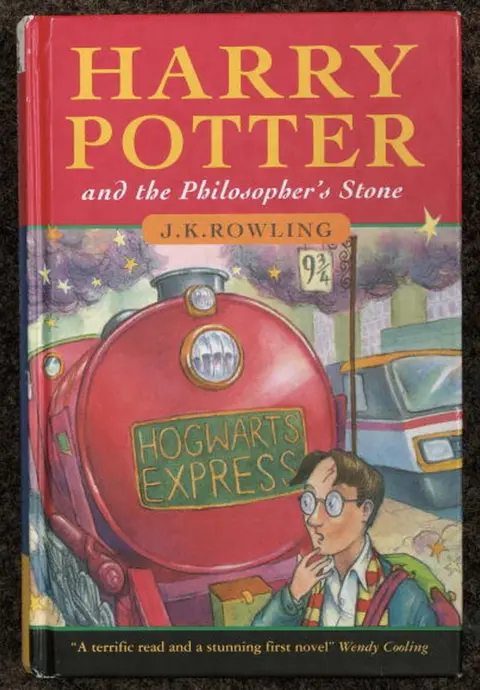 Getty Images
Getty Images
On the back cover of the book, the word "philosopher" is misspelled in the title.
Other errors include an incorrect number sequence on the imprint page and a duplication of "1 wand" on Harry's school equipment list.
It sold for £68,800 at Bonhams Auction House in Knightsbridge, west London, showing mistakes can add value.
Emma Watson's tattoo
Harry Potter actress Emma Watson suffered the same fate as the books.
Last year the 29-year-old showed off a tattoo paying homage to the women's rights movement, Time's Up.
 Reuters
ReutersUnfortunately for her, her tattoo had a grammatical error. Instead of saying "Time's Up" the tattoo says "Times Up".
The UN ambassador later joked about her inaccurate inking, tweeting: "Fake tattoo proofreading position available. Experience with apostrophes a must."
You say 'potatoe'...
For most elected officials, slip-ups on the campaign trail are quickly forgotten. Former Vice-President Dan Quayle was not so fortunate.
In 1992, he became a national laughing-stock after judging a spelling contest at Rivera Elementary School in Trenton, New Jersey.
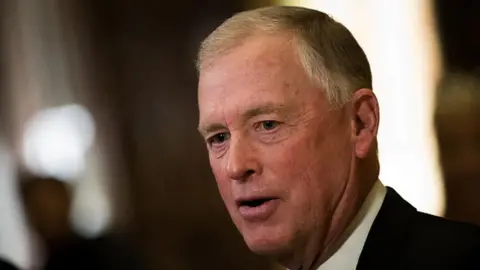 Getty Images
Getty ImagesReading from an inaccurate answer card, he altered a 12-year-old student's correct spelling of "potato" to "potatoe".
Mr Quayle was the subject of widespread ridicule for his error.
While Mr Trump simply shrugged off his "covfefe" gaffe, Mr Quayle was mortified. He later described his lapse as a "defining moment of the worst imaginable kind".
Glaring errors in newspapers
As the New York Times demonstrates, even the world's most respected titles can come a cropper.
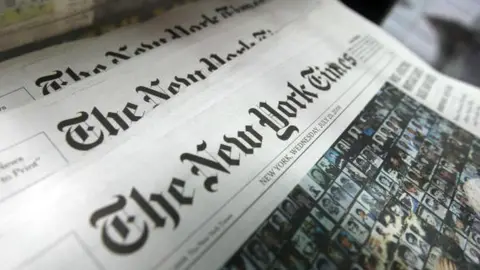 Getty Images
Getty ImagesA blatant typo was published on its front page on 19 May, 2014.
It spelled "response" as "reponse" in the sub-heading of a story about former US President Barack Obama.
In past decades UK newspaper The Guardian also garnered a reputation for typographical errors - it reportedly once printed its own name as the "Gaurdian", leading satirical magazine Private Eye to nickname it the "Grauniad".
